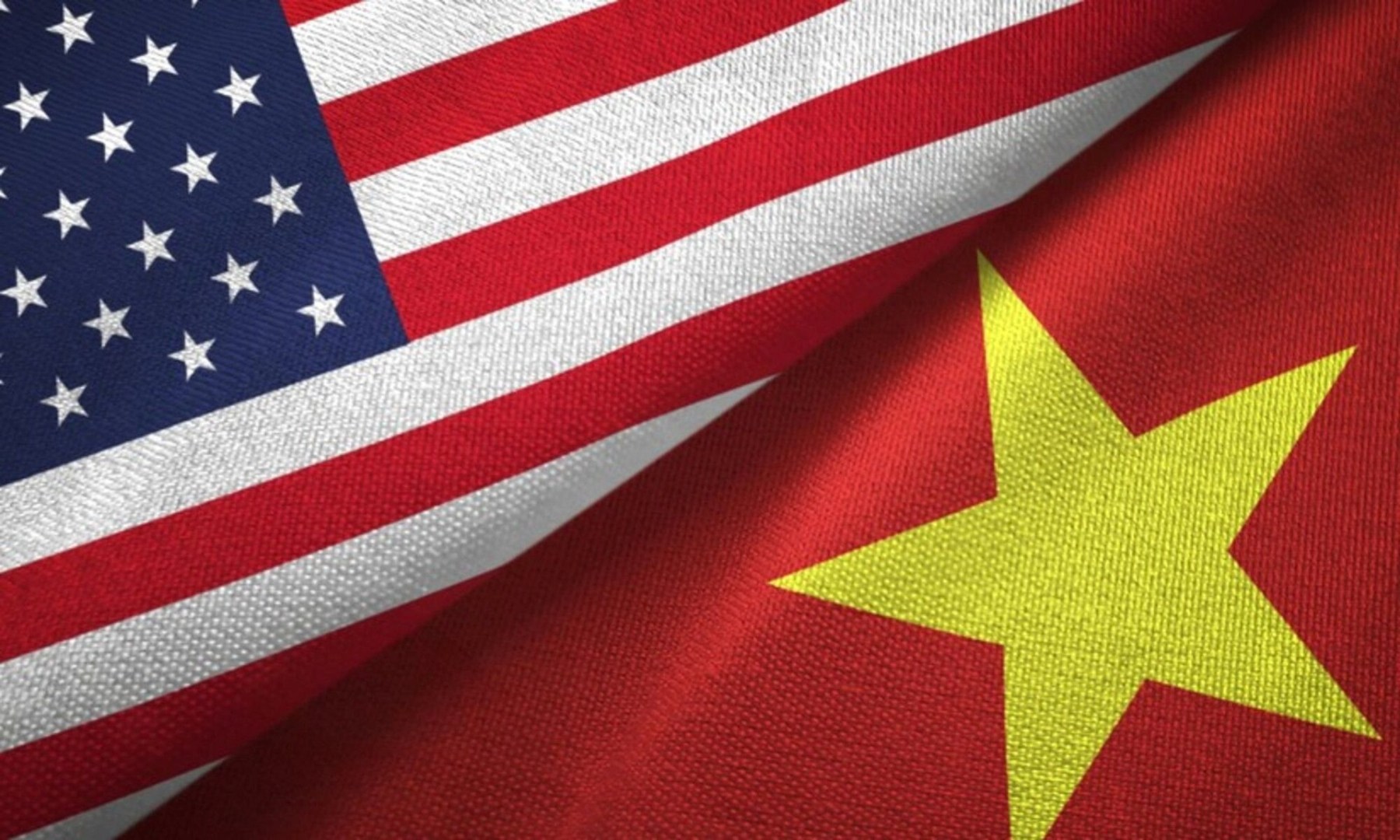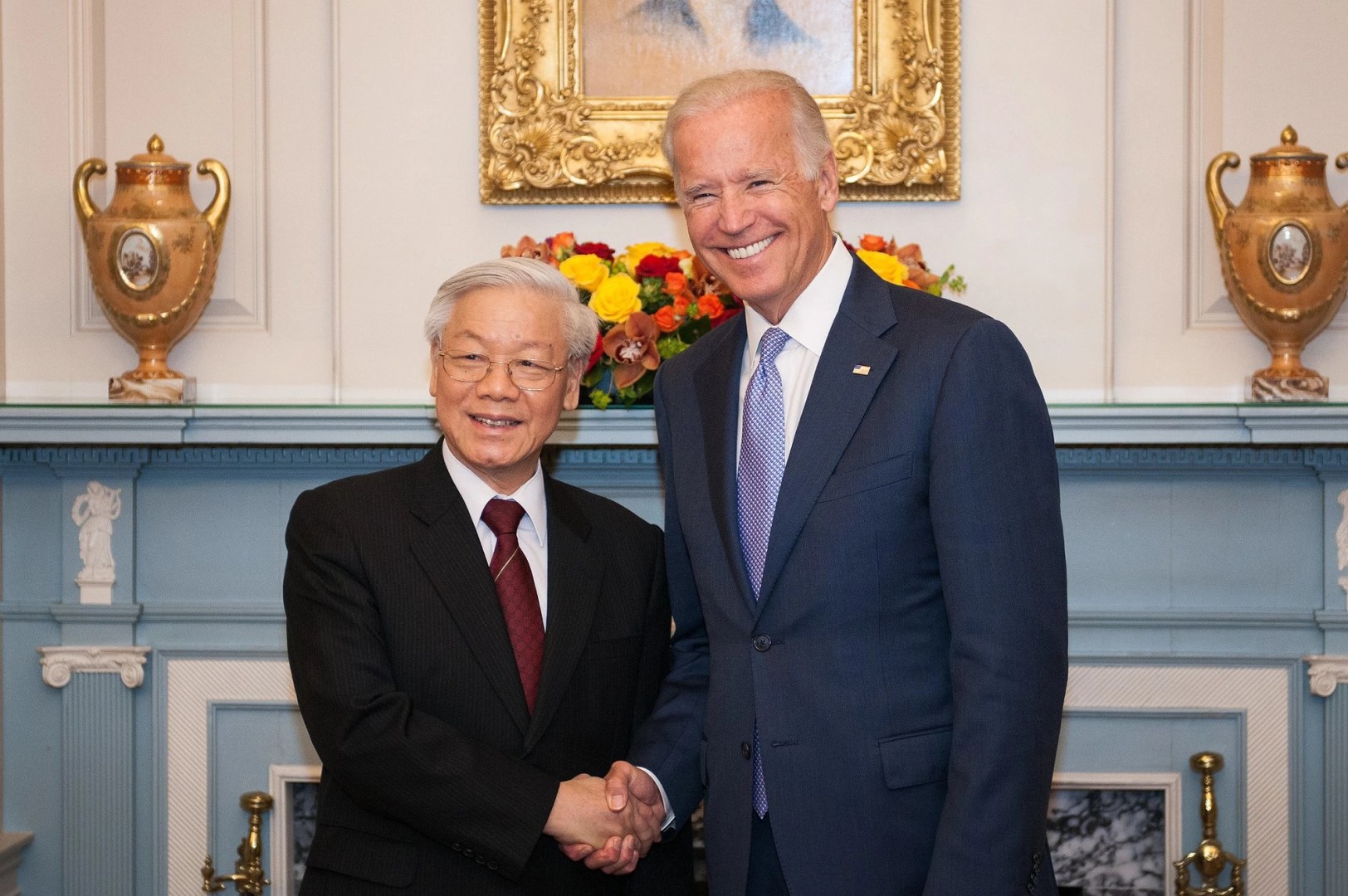
High-level visits of Vietnamese and US leaders have motivated the growth of Vietnam-US bilateral relations on the foundation of mutual benefit, equality and respect for each other’s independence, sovereignty and political institution.
The year 2023 is an important milestone in the Vietnam-US relations, as the two countries celebrate the 10th anniversary of their comprehensive partnership, and US President Joe Biden is making an official visit to Vietnam following Party General Secretary Nguyen Phu Trong’s invitation from September 10-11.
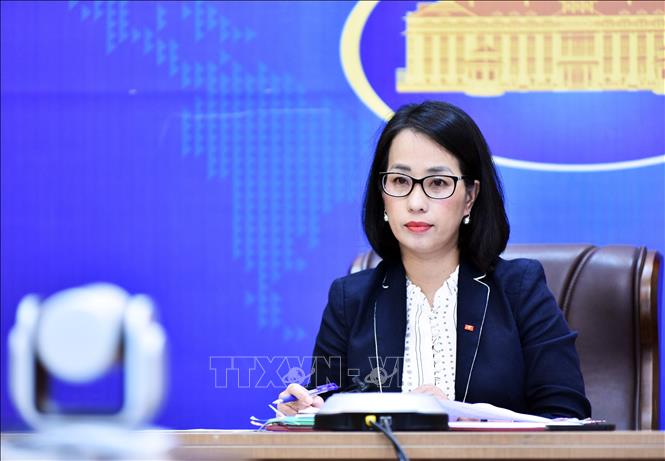
Commenting on the significance of the visits by senior leaders of the two countries in recent years, Foreign Ministry’s Spokesperson Pham Thu Hang said that the Vietnam-US relationship is to continue to develop in a stable, substantial and long-term manner in all fields.
Twenty-eight years since the two countries officially established diplomatic relations, visits by senior leaders of the two sides have left important imprints on bilateral relations, enabling the two countries to put the past aside, overcome differences, promote similarities, and move into the future on a win-win basis.

Today, Vietnam-US relations have shown comprehensive and practical developments, positively contributing to security, peace, cooperation and development in the region and the world.
In November 2001, Bill Clinton made a visit to Vietnam, becoming the first US President to pay an official visit to Vietnam. He is considered an important contributor to the process of normalizing the bilateral relations both during and after his office tenure.
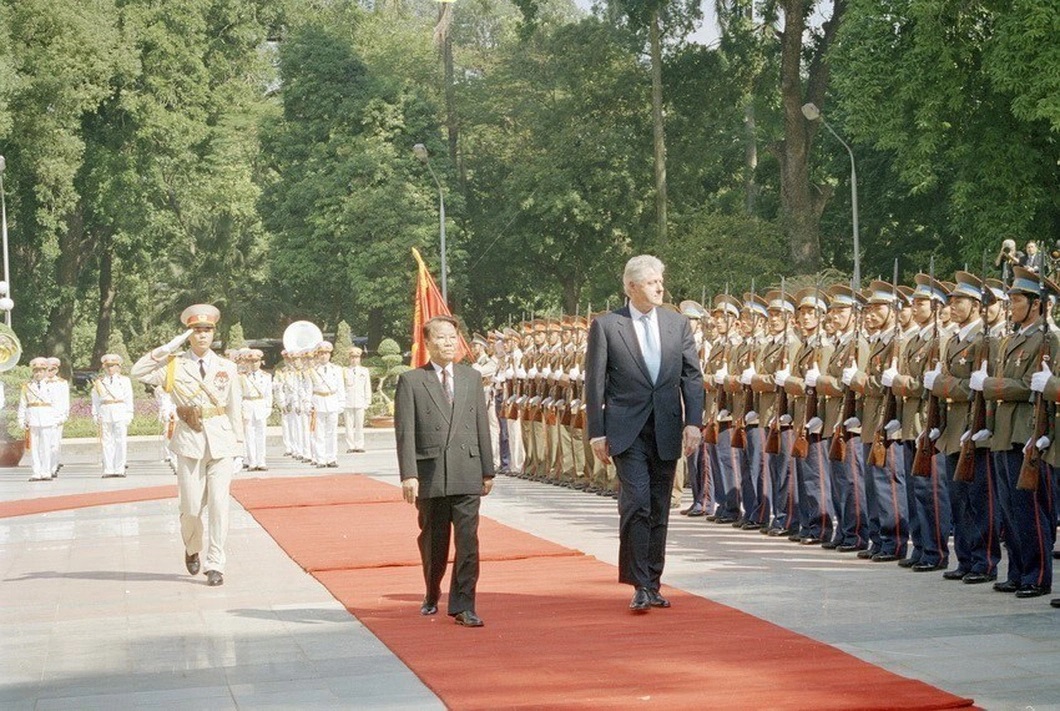
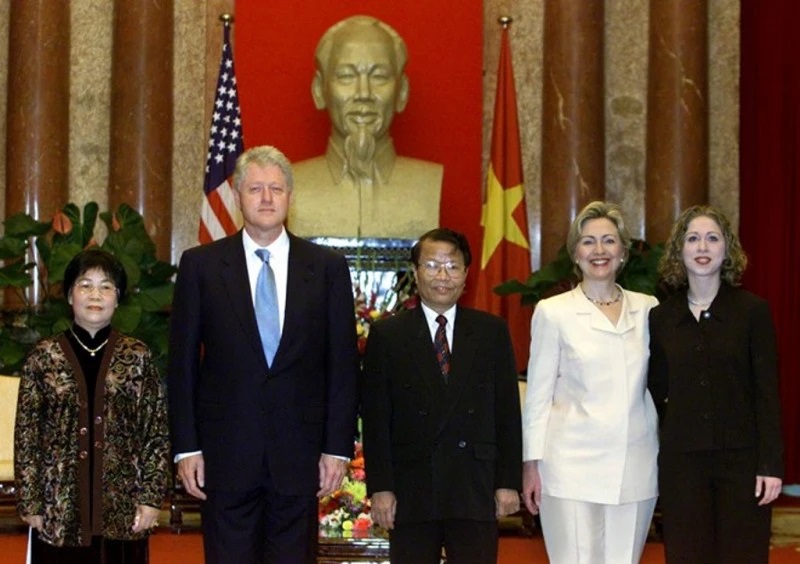
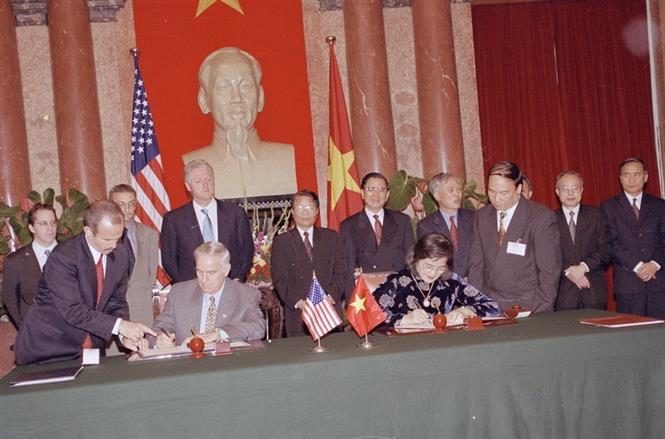
In June 2005, Prime Minister Phan Van Khai visited the US at the invitation of President George W. Bush. This was the first time that a Vietnamese Government leader had visited the US since the war ended.
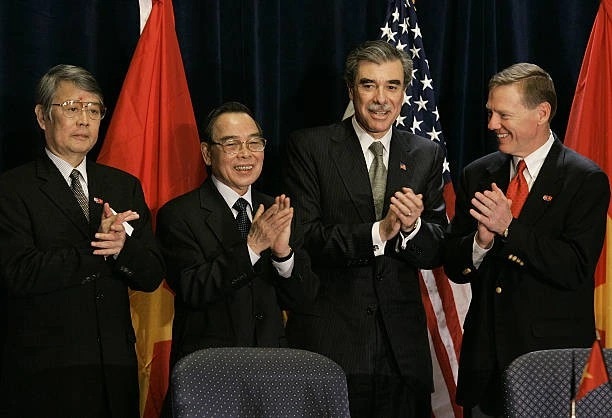
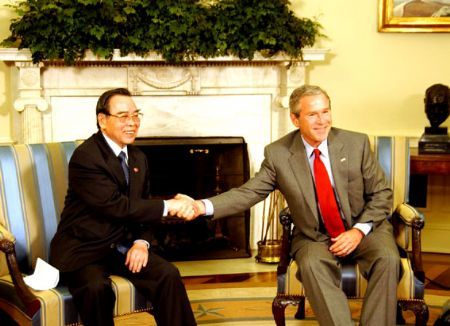
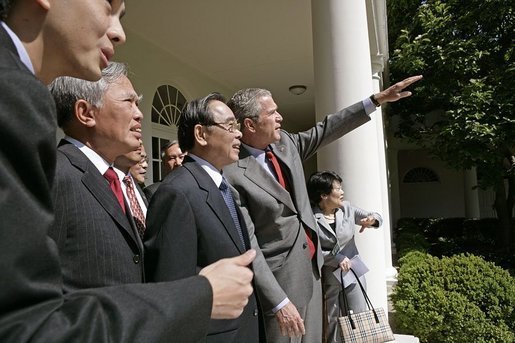
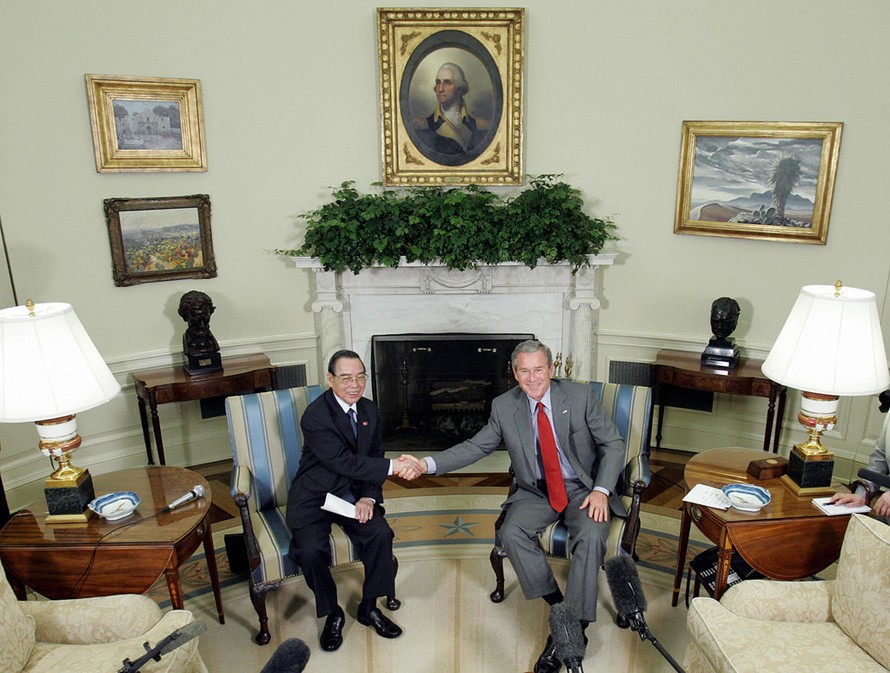
In following years, the two countries exchanged many high-level visits, including those by US President George W. Bush in November 2006, Vietnamese President Nguyen Minh Triet in June 2007, and Vietnamese Prime Minister Nguyen Tan Dung in June 2008.
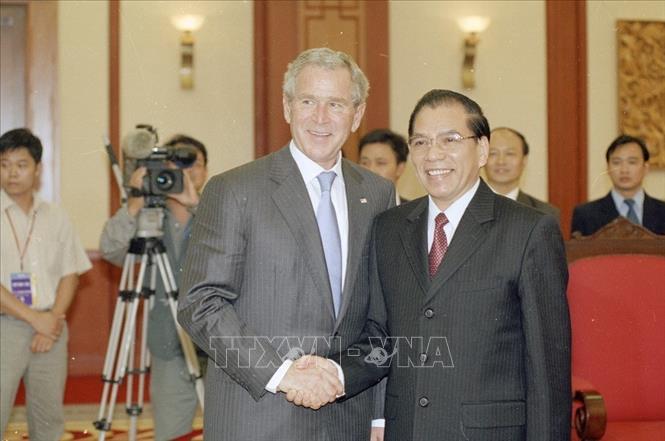
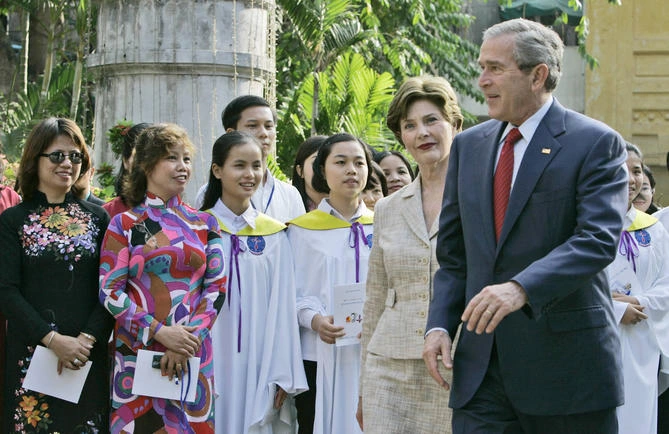
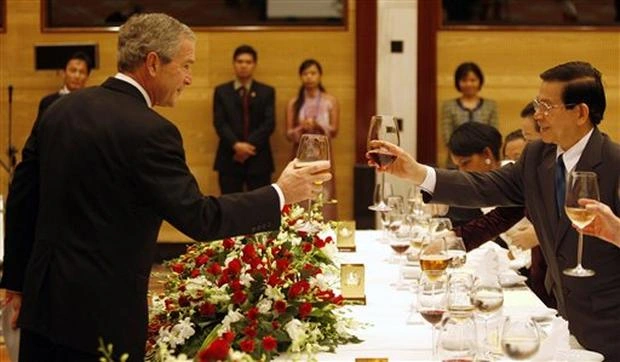
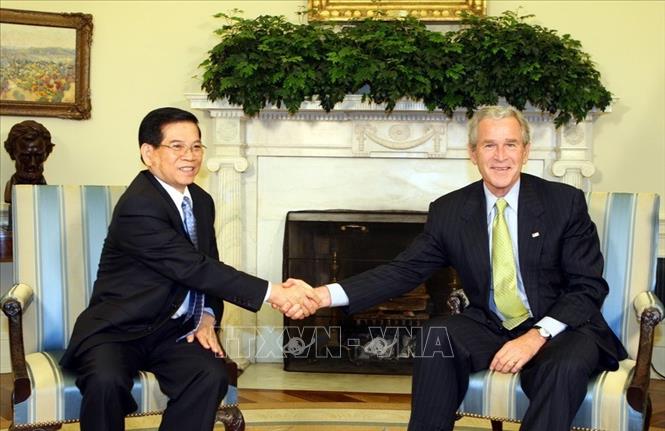
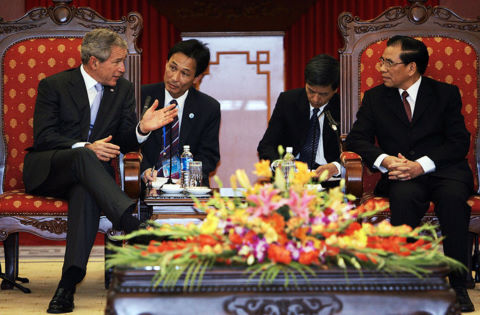

In July 2013 during the US visit by President Truong Tan Sang at the invitation of US President Barack Obama, the two sides set up a comprehensive partnership, shaping the framework for bilateral relations for a new period and development orientations of their ties in following years.
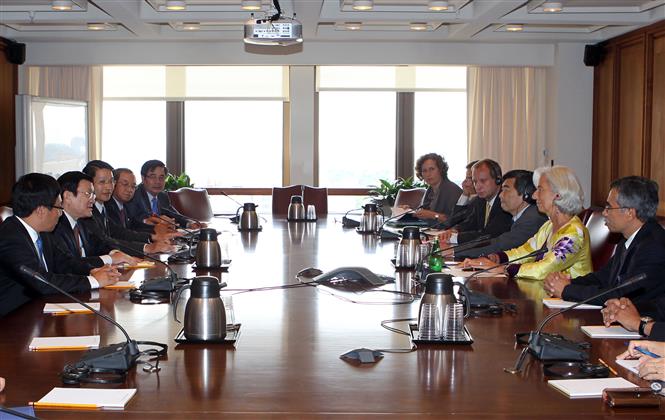
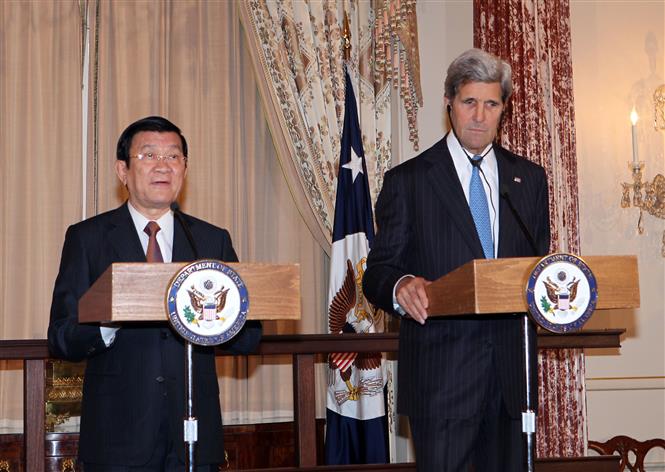
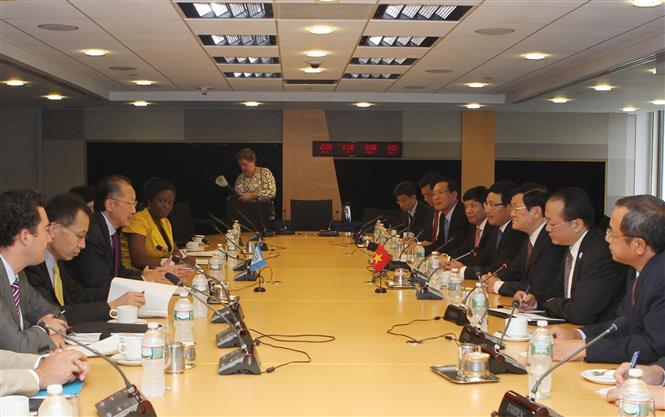
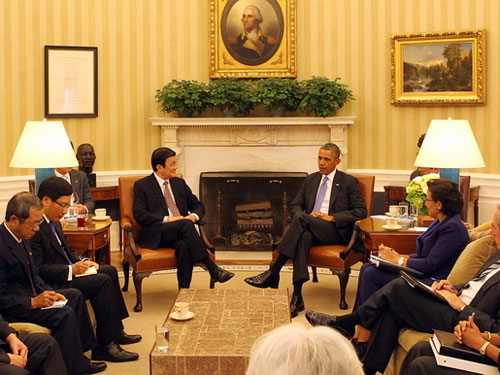
The important foundation for the development of the Vietnam-US comprehensive partnership is both sides’ commitment to fundamental principles such as to respect independence, sovereignty, territorial integrity, and equal and win-win cooperation on the basis of international law.
On this foundation, the two sides have continued to strengthen the political and diplomatic relations through visits at high and all levels, enhancing the mutual understanding and deepening the bilateral ties.
Notably, Vietnamese Party General Secretary Nguyen Phu Trong visited the US in 2015, and US President Barack Obama visited Vietnam in 2016. Prime Minister Nguyen Xuan Phuc made a visit to the US in 2017. US President Donald Trump visited Vietnam twice in 2017 and 2019. In 2021, US Vice President Kamala Harris paid a visit to Vietnam, and in May 2022, Prime Minister Pham Minh Chinh visited the US.
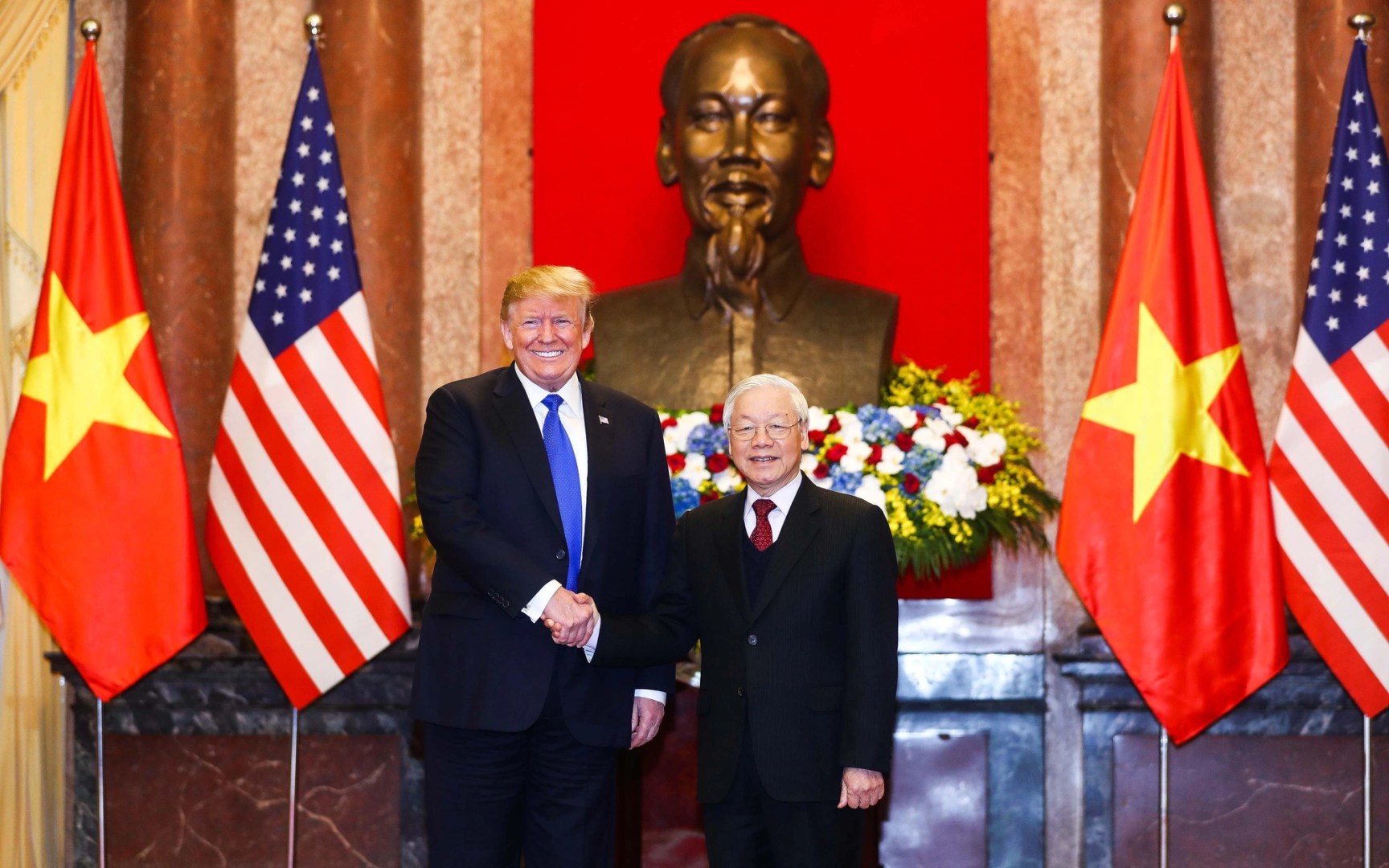
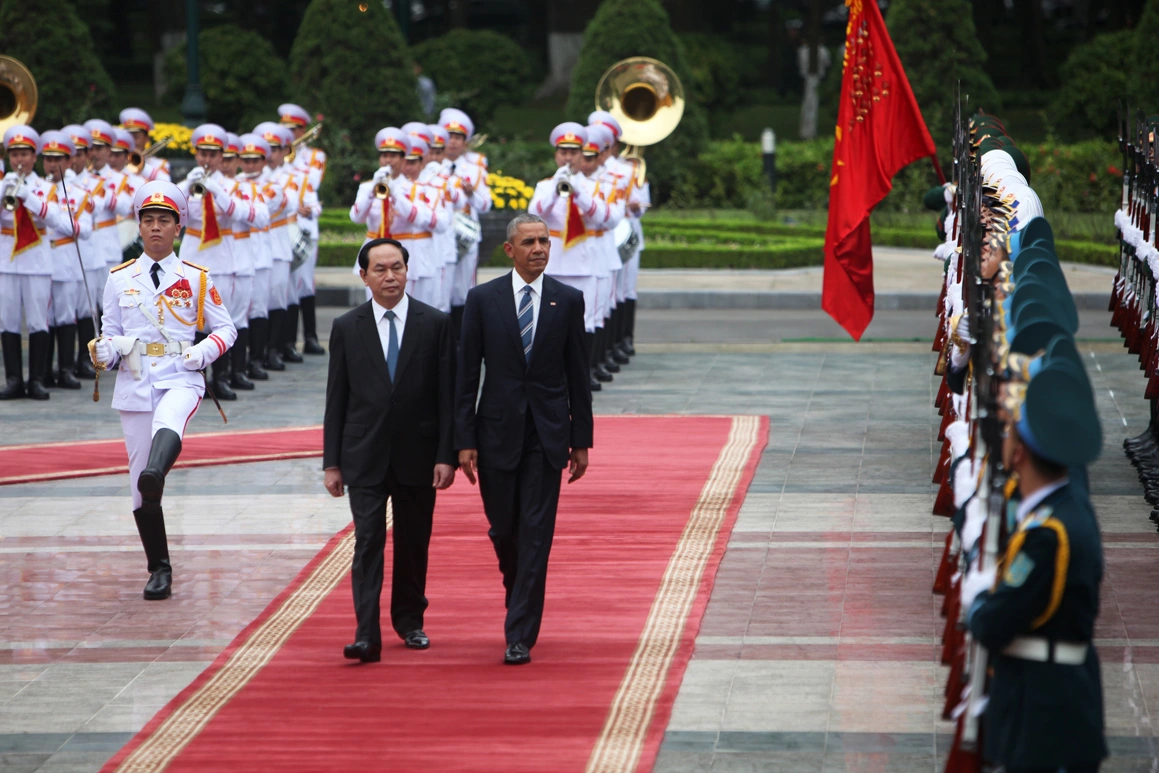
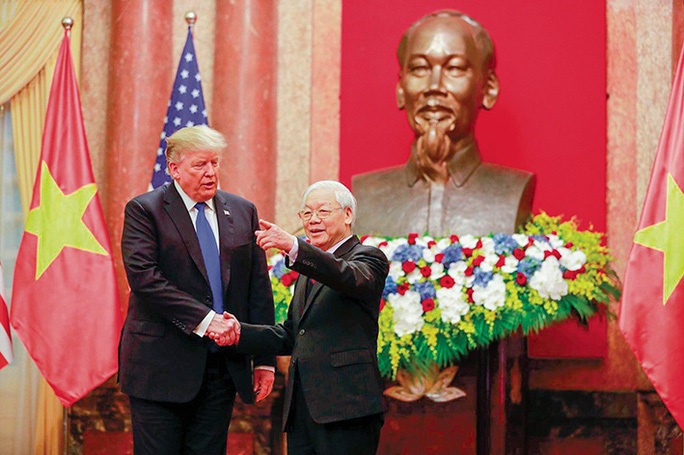
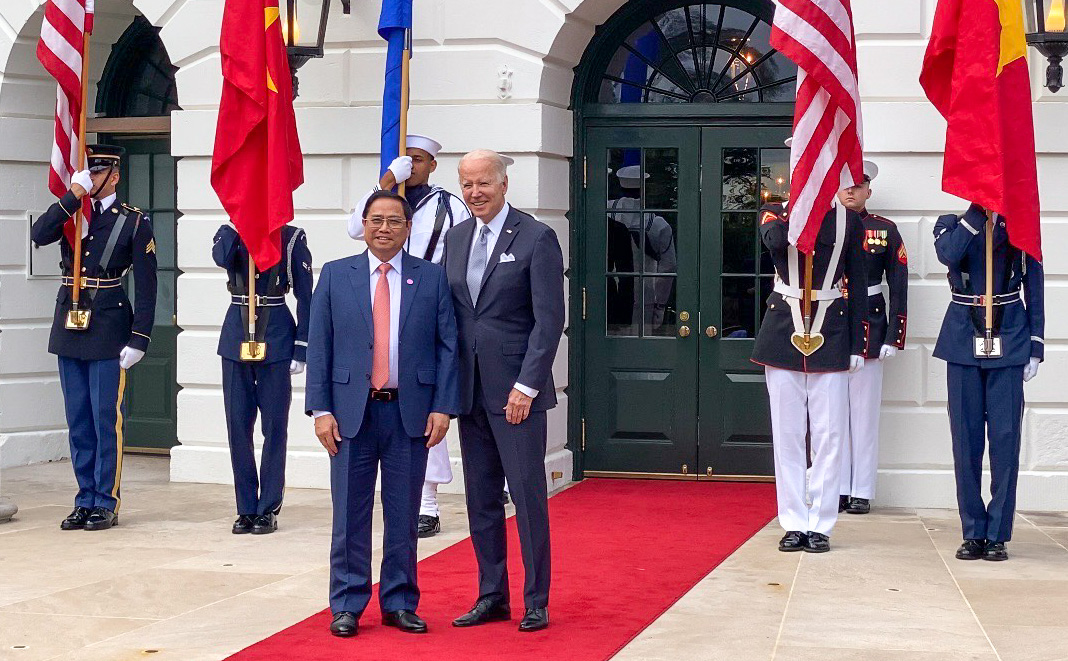
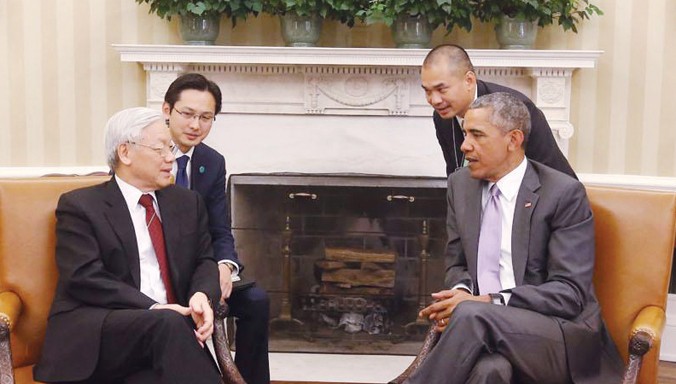
“We’ve just agreed to direct our agencies and people to engage in developing our comprehensive relations, whether it is in politics, diplomacy, trade, science, technology, education, health, environment, or climate change response. We will coordinate multilaterally on defense and security.”
Party General Secretary Nguyen Phu Trong said at the Oval Office in the White House on July 7, 2015
During their telephone talks in March 2023, Party General Secretary Nguyen Phu Trong and US President Joe Biden reiterated their invitation to each other. At the talks, Biden described Vietnam as an important partner, affirmed his support for an independent, self-reliant and prosperous Vietnam, and reaffirmed his respect for the independence, sovereignty, territorial integrity and political institution of Vietnam. He agreed that this respect is an important foundation for relations between the two countries.
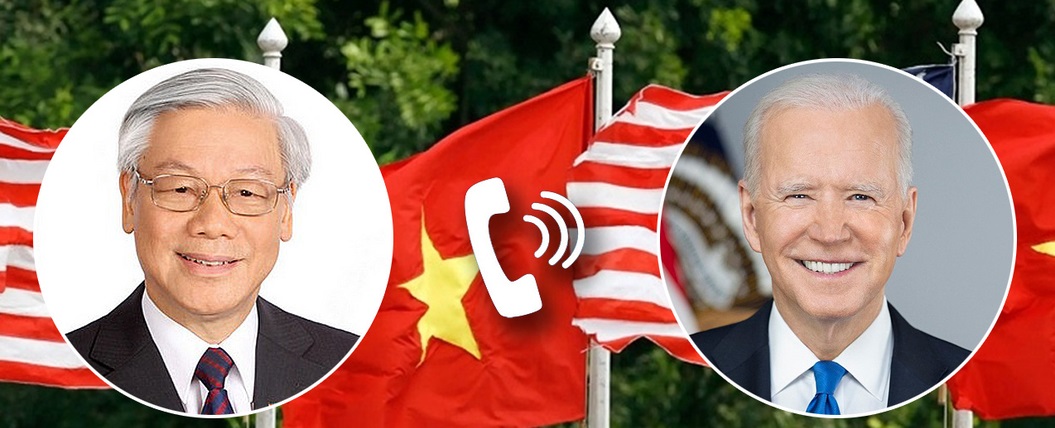
Biden’s two-day visit, starting today, will be another historical milestone in bilateral relations. The two sides are scheduled to discuss a wide range of issues of shared concern. These include promoting Vietnamese economic growth with focus on technology and innovation, expanding the ties between the two peoples through education exchange and workforce development programmes, responding to climate change, and strengthening peace, prosperity and stability in the region.
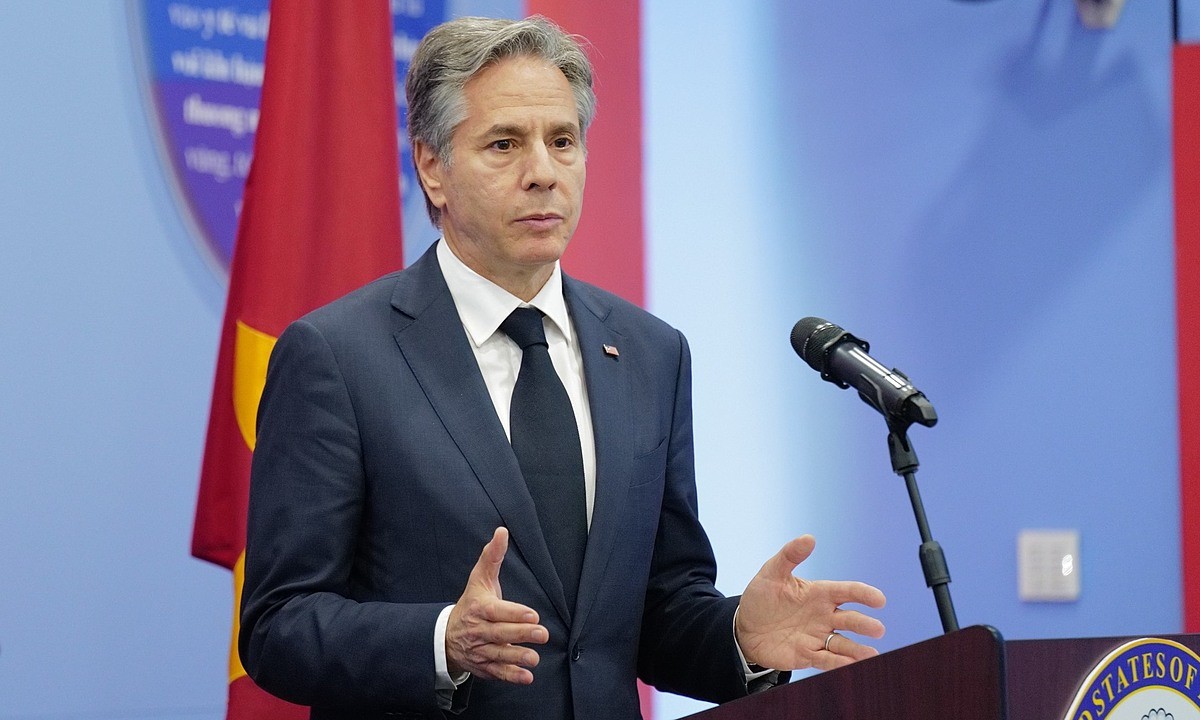
In his recent greetings to Vietnam on the occasion of the National Day on September 2, US Secretary of State Antony Blinken said: “I look forward to President Biden’s historic visit to Hanoi on September 10 to celebrate all we have achieved together and to plan for our shared future.”
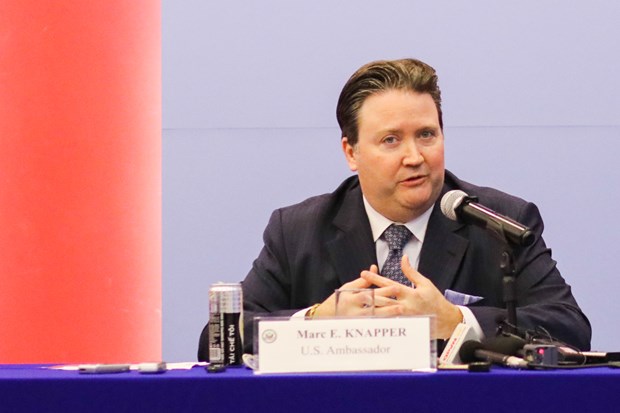
Meanwhile, US Ambassador to Vietnam Marc Knapper has told the media that the Vietnam visit by President Biden aims to spread a message that the two sides commit to bringing about prosperity and confidence to each other, and that the US hopes to prove that this relationship is meaningful and important for the people in Vietnam and the US as well.
In his greetings sent to US Secretary of State Antony Blinken on the occasion of the 10th anniversary of the Vietnam-US comprehensive partnership on July 26, Foreign Minister Bui Thanh Son affirmed that the anniversary is a chance for the two sides to discuss specific steps towards a brighter future, with Vietnam considering the US as one of its important partners.
Along with the sound political relations, economy-trade ties have been one of the most successful fields in the Vietnam-US relationship. The US is currently one of Vietnam’s largest trade partners. Two-way trade rose over 240 times to more than 130 billion USD in 2022 from 451 million USD in 1995.
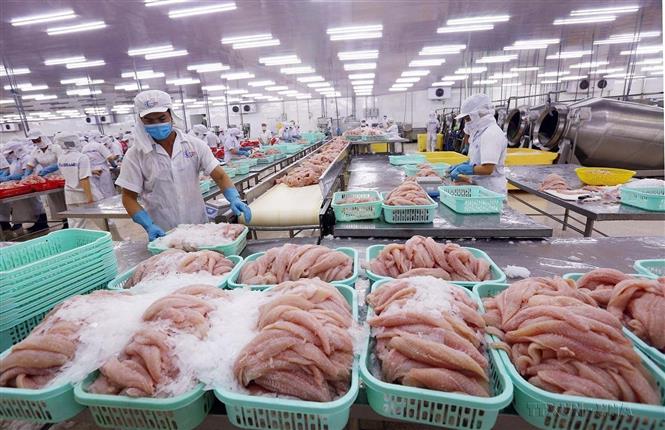
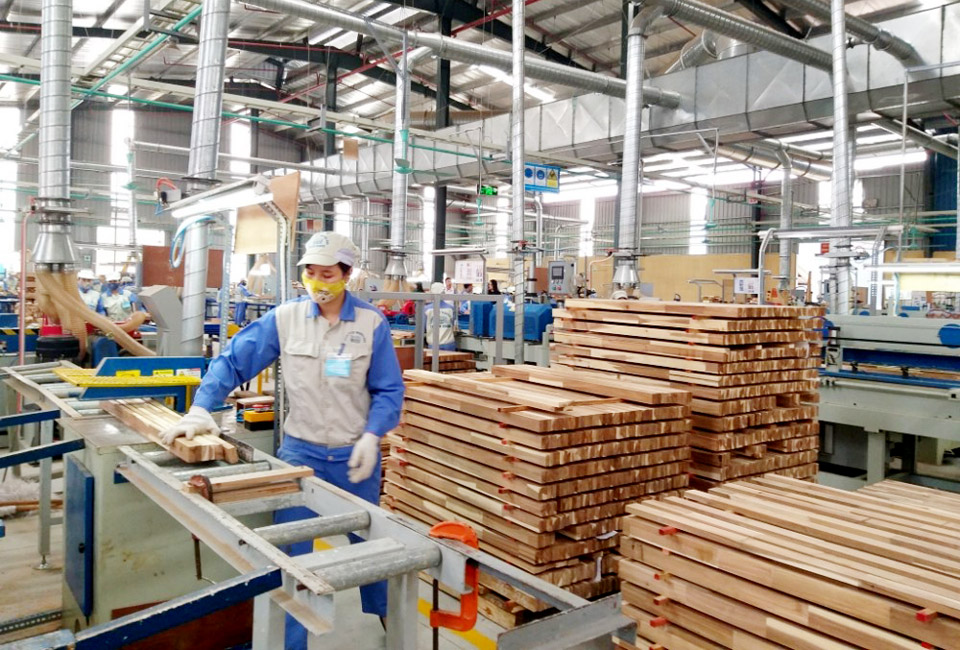
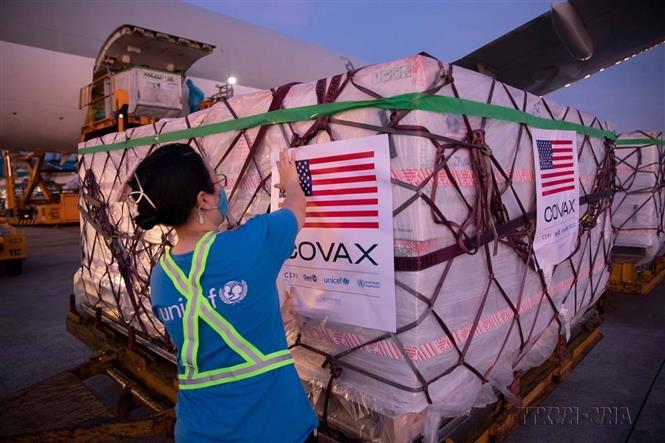
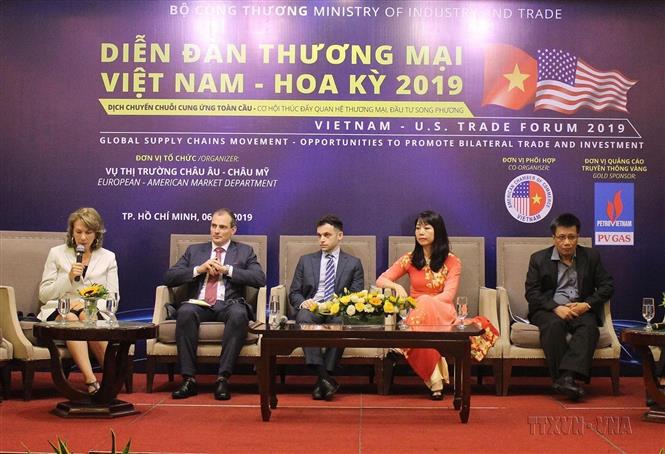
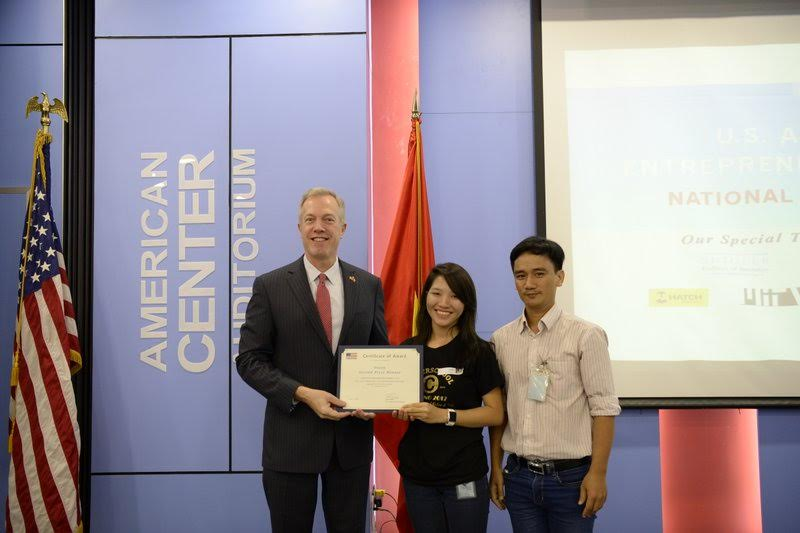
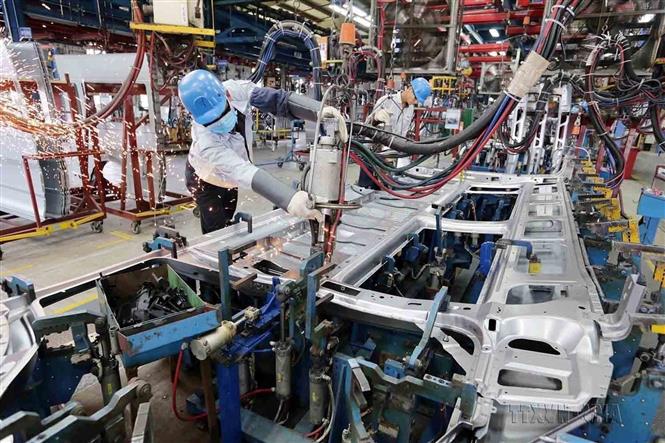
In terms of investment, the US has been one of the biggest investors in Vietnam with nearly 1,150 underway projects, and a total investment capital of over 10.3 billion USD, ranking 11th out of 141 economies investing in Vietnam.
Meanwhile, humanitarian cooperation and collaboration in overcoming war aftermaths have continued to receive high priority and generated great results. The US has joined hands with Vietnam in carrying out a dioxin detoxification project in Bien Hoa airport, while supporting persons with disabilities in dioxin polluted areas in Vietnam, and providing aid to projects to clear bombs and mines as well as search, repatriate and verify the remains of Vietnamese soldiers who died during the war. Vietnam has assisted the US in searching for US service members missing in action (MIA) and handed over to the US 733 sets of remains of US missing soldiers.
The Vietnamese Government has affirmed the willingness to coordinate closely with the US to beef up the bilateral ties in a deep, wide and substantial manner, especially in trade, investment, technology and innovation for the benefit of both peoples, and contributing to peace, stability, cooperation and sustainable development in the region and the world.
Vietnam will continue to support the US in actively and responsibly cooperating with the Association of Southeast Asian Nations (ASEAN) as well as the Asia-Pacific and Indian Ocean regions, including within the framework of regional mechanisms such as the ASEAN-US comprehensive strategic partnership, the Mekong-US partnership, and the Asia-Pacific Economic Cooperation (APEC) forum./.
